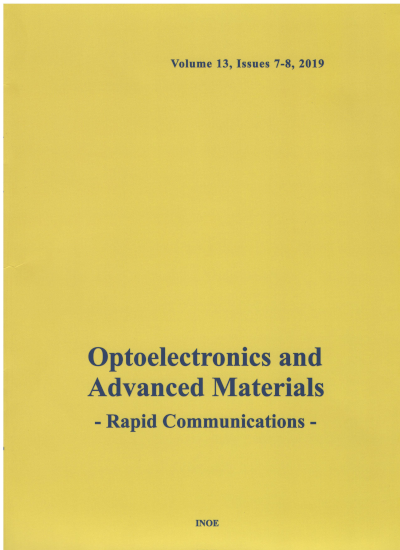Abstract
The objective of this paper was to study the suitability of ion sensitive field effect transistors (ISFETs) for clinical work with
special reference to a flow cell assembly. This was intended for use in the analysis of biological fluids, where the
concentrations of specific ions, e.g. calcium, potassium, are closely monitored. Evaluations the new electrochemical
assembly, for use in clinical chemistry, were made. Also, ETH 2041 (tetra - n – undecil 3, 3’ ,4, 4’ – benzophenone
tetracarboxylate) and DOS ( bis ( 2 –ethylhexyl) sebacate) plasticizers were used and their performances compared,
proving that the proposed plasticizer ETH 2041 improves the electrochemical characteristics of the selective device finally
obtained. Several points have arisen in this investigation with regard to the flow cell requirements and these are discussed
as appropriate.
Keywords
Dialysis flow-cell, ISFET, Ion selective membrane, Biological fluids.
Citation
E. EFTIMIE TOTU, E. RUSE, I. GHICA, D. MANUC, Sensitive device for ions of biological interest, Optoelectronics and Advanced Materials - Rapid Communications, 2, 8, August 2008, pp.502-506 (2008).
Submitted at: June 25, 2008
Accepted at: July 16, 2008
